5 Common Cat Behaviors

If you’re a cat owner, you know that cats can be pretty funny housemates. From their quirky sleeping habits to the strange things they do when they’re bored, cats can keep us entertained with their antics. But what’s behind these funny behaviors? Here are five of the most common cat behaviors and what might be causing them.
1. Yawning
Cats may be best known for their sleeping habits, but did you know that they yawn for a variety of reasons? In fact, a common cat behavior is yawning. This may signal a range of emotions, from relaxation to fatigue. Cats often yawn when they first wake up, just like humans. However, they can also yawn when they’re feeling tired or lazy. Yawning is also a way for cats to signal that they’re feeling relaxed, comfortable, or content. In some cases, yawning may also be a sign of boredom or stress. So, next time your cat lets out a big yawn, take a moment to consider what might be going on behind those sleepy eyes.
2. Head-Butting
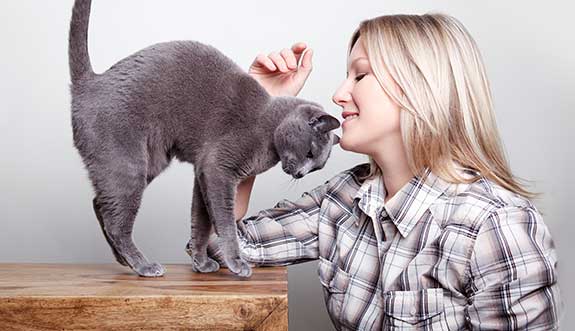
Cats have a variety of ways to show their affection with head-butting is one of the most common. When your cat nudges you with their head or gives you a little head-butt, they’re trying to tell you that they love you. Cats have scent glands on their faces, and by rubbing their head against you, they’re marking you as a part of their territory. It’s also a way of depositing their own scent onto you, which makes them feel more comfortable and secure. Head-butting is usually seen as a positive behavior, but if your cat starts doing it excessively, it may be a sign of stress or anxiety. If you’re concerned about your cat’s head-butting, talk to your veterinarian for advice.
3. Keading
Most house cats are also great imaginary bakers! If you’ve ever watched a cat “knead dough,” you may have wondered why they do it. This behavior is actually quite common in cats. When cats knead, they push their paws alternately into the ground or object. This motion is often paired with purring, which some experts believe is a sign of contentment.
While the exact reason for kneading is unclear, there are a few theories. One possibility is that it’s a carryover from kittenhood. When kittens nurse, they knead their mother’s teats in order to stimulate milk flow. Another theory is that cats use kneading as a way to mark their territory with scent glands in their paws. Regardless of the reason, kneading is perfectly normal feline behavior. So, if your cat starts working those doughy paws, there’s no need to worry. Cats usually enjoy kneading soft plush blankets, bedding comforters, or boogie mats. FAT CAT Boogie Mats by Petmate is made with durable plush fabrics that are designed to stand up to your cat’s sharp claws and are filled with organic catnip to attract your cat to the mat.
4. Licking Your Face Cat Behavior
Cats are often thought of as independent creatures, but they can actually be quite affectionate towards their owners. While most cat owners are familiar with the occasional head bump or purr, some may be less familiar with face licking. Though it may seem like odd behavior, face licking is actually a sign of trust and affection from your cat. When cats live in the wild, they groom each other as a way of maintaining social bonds. As domestic cats have evolved to become more reliant on humans, they have retained this behavior as a way of showing trust. So, if your cat licks your face, it’s a sign that they see you as a friend. And while cat saliva may not be the most appetizing thing in the world, it’s a sign of love, nonetheless.
5. Chattering
If you’ve ever heard your cat’s teeth chatter while they’re staring at something, you may have wondered what’s going on. Chattering is a common hunting behavior in cats, and it’s thought to be instinctive. When cats see their prey, they may start to chatter with their teeth as they stalk their target. This behavior is often accompanied by a low growl. Scientists believe that chattering helps cats to focus on their prey and to coordinate their attacks. Some cat experts also think that it helps to release tension and excitement. So, if you hear your cat chattering away, there’s no need to worry – they’re just getting ready to strike!
Conclusion
The next time your cat starts head-butting you for no reason or kneading your brand-new sofa with their sharp claws, just know that they’re really only trying to show you how much they love you. And if you need a little help returning the love, be sure to check out Petmate’s selection of cat products.
Previous article
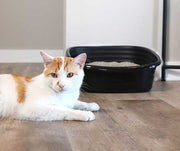
Next article
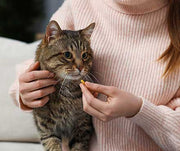
Related posts
View all-

5 Simple Tips to Make Sure Your Cat Drinks Enough Water
Ensuring your cat stays hydrated is important, but it can be challenging since many cats don't drink enough water. Dehydration can lead to kidney disease and other health issues. Fortunately, you can encourage your cat to drink more with a few simple changes. Read Article -
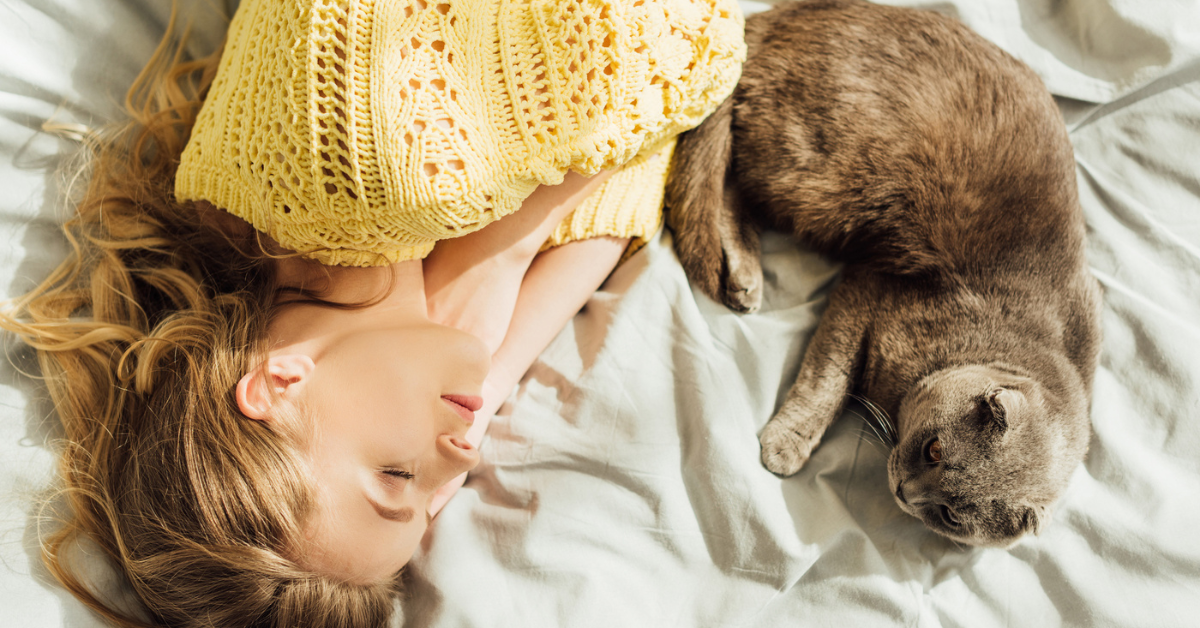
How to Keep Your Cat Busy at Night (So You Can Sleep)
For many cat owners, the quest for a good night's sleep while keeping their feline friends content and engaged can seem like a never-ending battle. Cats, naturally more active at night or early in the morning, often disrupt your sleep schedules with nocturnal activity, whether through playful nature or seeking attention. Read Article -
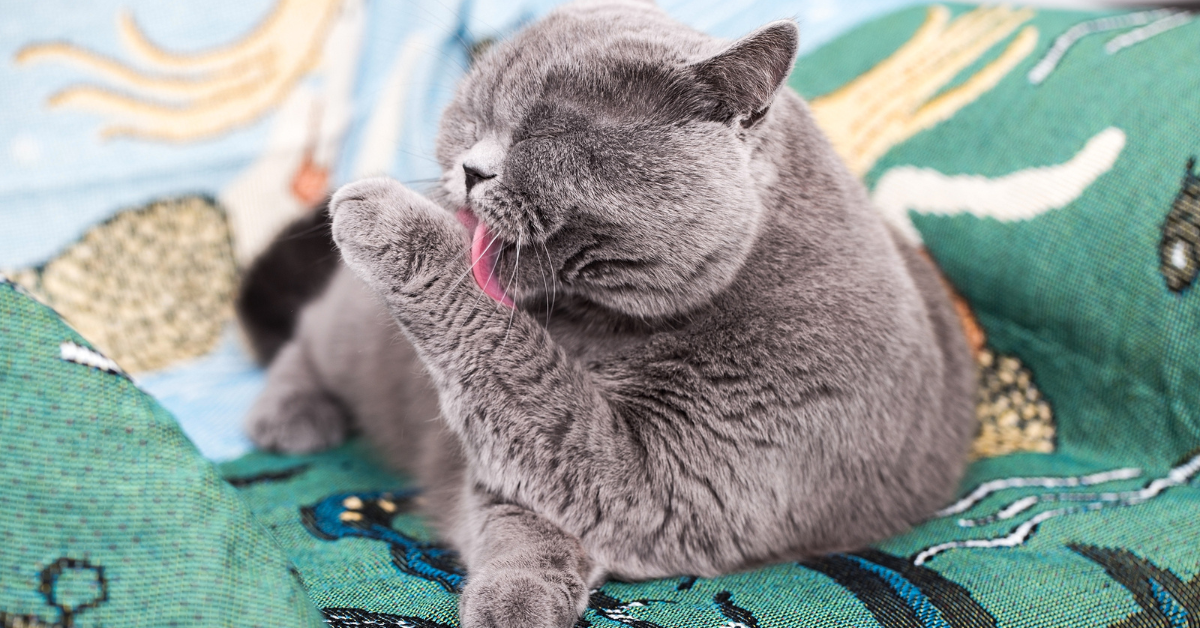
Should You Bathe Your Cat? Everything You Need to Know About Cat Hygiene
When it comes to cat hygiene, a common question among cat owners is, "Should you bathe your cat?" Understanding how to care for felines, especially bathing cats properly, is crucial for maintaining their overall health. Most cats are fastidious groomers, but specific scenarios like long-haired cats getting dirty or skin irritations, might require a bath.
Read Article

